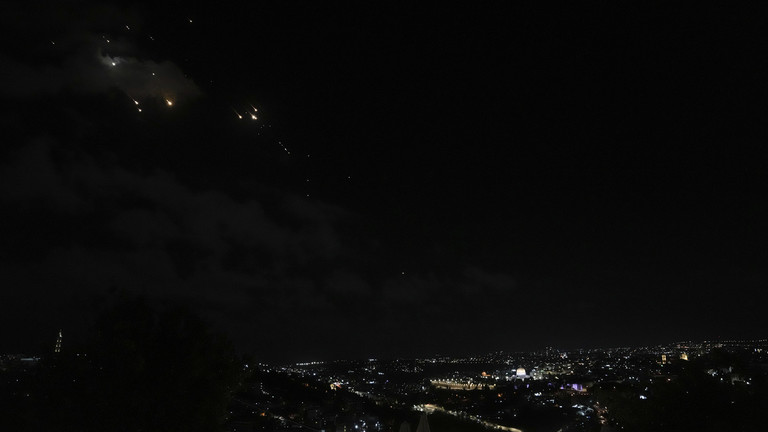World
Media Reports: Iran Readies ‘At Least Ten’ Attack Plans Against Israel

Iran has reportedly prepared multiple plans for an attack on Israel, according to media sources, escalating concerns of further conflict in the Middle East.
According to the news agency operated by the Islamic Revolutionary Guard Corps (IRGC), the Iranian military has developed “at least ten” scenarios in anticipation of a potential Israeli attack.
Last Tuesday, Iran launched a series of missile attacks on Israel, targeting several military bases. Tehran stated this was in retaliation for recent Israeli actions resulting in the deaths of Hamas and Hezbollah leaders. In response, Israel pledged to execute a “serious and significant” counterattack.
According to the Tasnim news agency on Monday evening, Tehran has developed a minimum of ten scenarios to retaliate against any Israeli actions.
According to the agency’s military source, Iran’s response may not match the scale of Israel’s actions but could be more severe and target different objectives to enhance its impact.
According to Tasnim’s source, because Israel is significantly smaller than Iran and has “less and more sensitive” infrastructure, Iranian retaliation could lead to “unprecedented troubles.”
READ ALSO: Israeli Threats on Iran’s Oil Infrastructure Trigger Surge in Oil Prices
The source emphasized that any country supporting Israel in a potential attack “would cross Iran’s red lines and face consequences.”
The comment seemed to target the United States, which has been working closely with Prime Minister Benjamin Netanyahu’s government regarding a potential strike on Iran. Last week, Tehran communicated through Qatar to Washington that it would no longer practice “unilateral self-restraint.”
On Sunday, Israeli TV channel Kan11 reported that Washington proposed a “compensation package” to West Jerusalem in exchange for refraining from striking Iranian nuclear sites or oil facilities. Nonetheless, Israeli Defense Minister Yoav Gallant informed CNN that “everything is on the table.”
Monday was the anniversary of Hamas’s October 7 incursion into southern Israel, which resulted in approximately 1,200 deaths. In response, Israel declared war on the Gaza-based Palestinian organization, leading to extensive destruction and a death toll of at least 41,000 people as reported by local authorities.
In August, Ismail Haniyeh, the chief of Hamas’ political bureau, was killed in Tehran. Israel did not officially acknowledge its involvement in his death. However, West Jerusalem did take responsibility for an airstrike that resulted in the death of Hezbollah leader Hassan Nasrallah last month during a military campaign targeting the Shia militia based in Lebanon. This operation has led to over 2,000 casualties thus far.
